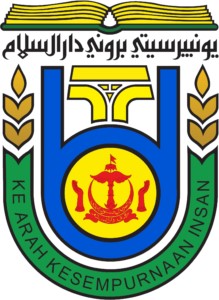
International Conference on Islamic Finance & Sustainability (ICIFS) 2025
Venue
Balai Khazanah Islam Sultan Haji Hassanal Bolkiah (BKISHHB) &
Universiti Brunei Darussalam (UBD)
4 - 6 February 2025 (Physical & Online)
Organized by
Universiti Brunei Darussalam
THE ROLE OF ISLAMIC FINANCE IN ACHIEVING SUSTAINABLE DEVELOPMENT
In the current global financial landscape, integrating sustainability principles is increasingly crucial. Conventional financial models often fall short in addressing social equity, environmental protection, and economic resilience. Islamic finance, with its principles of risk-sharing, asset-backing, and ethical investment, offers a unique solution. However, its potential to contribute to sustainable development goals (SDGs) remains underexplored and underutilised.
There is a critical need to better align Islamic financial models with sustainable development, addressing challenges such as poverty alleviation, climate change, and sustainable infrastructure. These challenges represent an opportunity for Islamic finance to offer innovative solutions and lead to a more inclusive and sustainable financial system. Economic uncertainties, environmental crises, and social inequalities amplify the urgency to explore Islamic finance.
Topics
Papers in all areas of Islamic finance, accounting, and economics dealing with sustainable development issues are welcome. Specific topics include, but are not limited to:
1. Islamic Finance and Poverty Alleviation:
Exploring how Islamic financial instruments can contribute to reducing poverty and promoting equitable wealth distribution.
2. Islamic Finance and Circular Economy:
Exploring how the principles and instruments of Islamic finance can shape the circular economy.
3. Green Sukuk and Environmental Sustainability:
Discussing the role of Sukuk (Islamic bonds) in financing environmentally sustainable projects.
4. Islamic Microfinance and Rural Development:
Focusing on the impact of Islamic microfinance in supporting rural communities and small-scale enterprises.
5. Ethical Investment and Corporate Social Responsibility in Islamic Finance:
Examining how Islamic finance promotes ethical investment practices and corporate social responsibility.
6. Technology and Innovation in Islamic Finance:
Exploring the role of fintech and innovative solutions in advancing Islamic finance.
7. Islamic Banking and Financial Inclusion:
Discussing strategies for using Islamic banking to improve financial inclusion, especially for marginalized communities.
8. Risk Management in Islamic Finance:
Addressing the unique risk management challenges and strategies in Islamic financial institutions.
9. Islamic Finance and Gender Empowerment:
Examining the role of Islamic finance in promoting gender equality and empowering women economically.
10. Sustainable Infrastructure Development through Islamic Finance:
Exploring how Islamic finance can be leveraged to fund sustainable and resilient infrastructure projects.
11. Islamic Insurance (Takaful) and Social Protection:
Discussing the role of Takaful in providing social protection and supporting health and welfare systems.
12. Islamic Finance in the Context of Global Economic Crises:
Analyzing the resilience of Islamic financial institutions during economic downturns and global crises.
13. Cross-border Transactions and International Trade in Islamic Finance:
Exploring how Islamic finance facilitates cross-border transactions and supports international trade.
14. Islamic Finance and Education: Investing in the Future:
Discussing the investment in education sectors through Islamic financial instruments.
15. Islamic Finance for Sustainable Agriculture and Food Security:
Exploring the role of Islamic finance in promoting sustainable agricultural practices and ensuring food security.
16. Regulatory Frameworks and Policy Development in Islamic Finance:
Examining the need for supportive regulatory environments and policies to foster the growth of Islamic finance
aligned with sustainable development goals.
BEST PAPER AWARDS
Three papers will be selected for the best paper award. All submitted papers will be reviewed based on merit, novelty and practical application. Papers registered after 15 December 2024 and online presentation will not be considered for the awards.
The Award category:
1st Prize – BND 1,500
2nd Prize – BND 1,000
3rd Prize – BND 750
REGISTRATION & SUBMISSION
Registration and submission of full paper must be done electronically through the ConfBay online submission system.
- For First time user, click on the "Registration" menu to create ConfBay Account, and proceed for conference registration by logging in the system. For existing ConfBay user, proceed Login.
- You must enter a valid email address. All notification will be sent via registered email.
- If you wish to make a submission, please register as "Presenter".
- Click on the "Online Submission" menu to submit your full paper/manuscript, and follow the procedure.
PAYMENT
1) Go to https://epay.ubd.edu.bn/account/sign_in
2) Choose whether you are a UBD Staff/Student or a Public
3) For UBD Staff/Student - Log in using your UBD registration number or e-mail name without @ubd.edu.bn and UBD e-mail password
4) For Public - Log in using your signed-up e-mail
Kindly alert us if there are any inquiries to make the payments.
NOTE: It is recommended that you use Google Chrome and allow/unblock pop-up blockers in your PC, Laptop, or mobile settings.
Secretariat
International Conference on Islamic Finance & Sustainability (ICIFS) 2025
UBD School of Business and Economics
Universiti Brunei Darussalam
Email: icifs.brunei@ubd.edu.bn